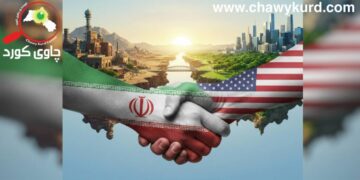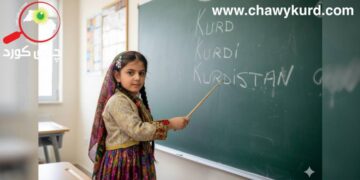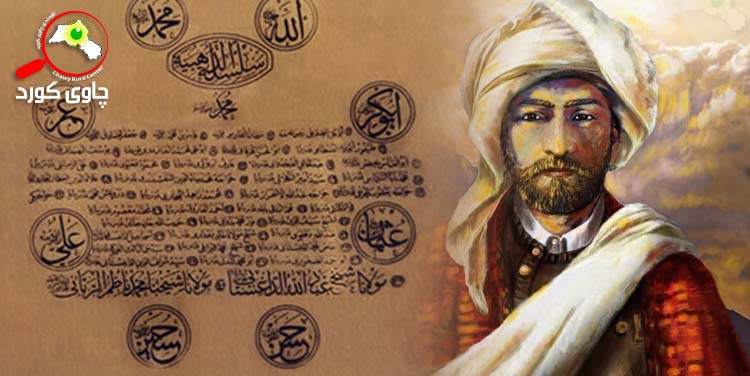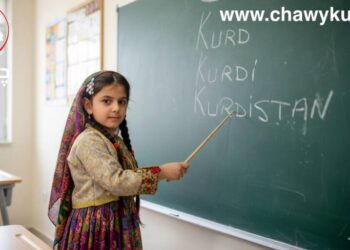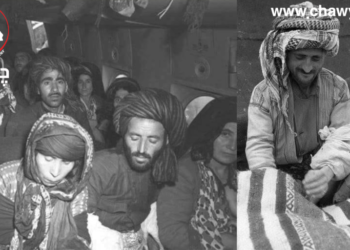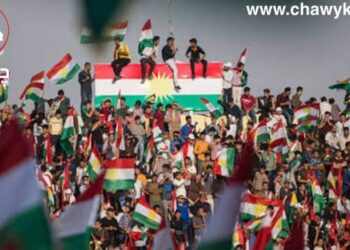In the late 1880s, the Dutch Indies authorities, suspicious of pan-Islamic activities, confiscated a piece of writing in poor Arabic from a returning pilgrim, Haji Mohamad Arsat [I. M. Ersad], and sent it for analysis to the advisor for Islamic affairs, the Arabist Christiaan Snouck Hurgronje. The text contained some basic instructions for the Naqshbandi devotions. These are to begin with the recitation of 3, 5, 15, or 25 istighfars, 3 times the Sura al-Ikhlas and once each the Sura al-Falaq, al-Nas, and al-Fatiha, the merit of these recitations to be dedicated to Shaykh Baha’al-Din Naqshband. Then one has to visualize the image of the mediator, shavkhuna wa mawlana Khalid Nagshbandi, to whom Shaykh Sulaiman Efendi in Mecca traces his spiritual ancestry. His [i.e., Khalid’s stature is tall and large, his beard is black on the left and right sides but white in the middle, his chin and chest are broad. From him one should request spiritual strengthening and the connection with Allah the Supreme. After this one brings to memory the formula of denial and affirmation, hence the dhikr ism al-dhat, consecutively in the various lata if… The treatise ended with the claim that the author had been given the permission to practice and teaches these devotions.1
From tracts like these we gather that in the late 19th century, more than a half century after Mawlana Khalid’s death, people in various parts of Southeast Asia were still performing the rabita, the visualisation of the shaykh prior to the dhikr, with Mawlana Khalid rather than with his successors. The simple description of a tall and stout, bearded, broad-chested and broad-chinned man kept focusing Indonesian devotees’ attention on the Kurdish master. The spiritual concentration on Khalid kept the order connected to a centre, which the devotees imagined in Mecca, on the hill of Abu Qubays, where numerous Indonesians had been initiated into the Naqshbandiyya Khalidiyya.
Several Sufi orders had spread to Indonesia in the preceding centuries and some of these notably the Sammaniyya and the Qadiriyya wa-Naqshbandiyya – had found a mass following before, but none of them experienced such rapid growth as the Naqshbandiyya Khalidiyya. Like in the Ottoman Empire, it was as if Mawlana Khalid had infused the order with a new dynamism and missionary spirit unrivalled by any of the other orders.
The first Southeast Asian Khalidiyya teacher Like the earlier influences, the Khalidiyya reached Indonesia by way of the Hijaz. In this case, it was especially the zawiya established on Jabal Abu Quays that became the hub connecting all of Indonesia with the Khalidiyya. Mawlana Khalid had appointed Abdullah Arzinjani as his khalifa in Mecca, and it was probably through Arzinjani that the first Indonesians, temporarily or permanently residing in Mecca, were induced into the Khalidiyya. Arzinjani appointed as his successor the Crimean [Kirimh] Sulayman al-Qirimi, who in turn was succeeded by a namesake, Sulayman al-Zuhdi, often simply referred to as Sulayman Efendi or the shaykh of Jabal Qubays’. It was especially the latter Sulayman, who flourished in the last quarter of the 19th century, who presided over a rapid expansion of the order in various parts of Indonesia.
The earliest Indonesian Khalidiyya whom we know by name is Ismail al-Minankabawi or al-Barusi, whose names indicate that he belonged to the Minangkabau ethnic group of West Sumatra and probably originated from the coastal district of Baros, to the northwest of the Minangkabau heartland. He is mentioned in an early Khalidiyya text, Al-rahma al-habita fi dhikr ism al-dhat wa’l-rabita, written by Husayn al-Dawsari, who was himself Mawlana Khalid’s khalifa in al-Ahsa but speaks of Ismail as of a teacher too. 2 Isma’il’s name occurs in numerous Indonesian Khalidiyya silsilas, usually in between the two Sulaymans but occasionally even preceding both. An observation in a treatise by Sulayman Zuhdi gives a hint as to the explanation: he claims that Abdullah Arzinjani named Sulayman al-Qirimi his khalifa and successor but appointed Isma’il to act as Sulayman’s assistant. Although Zuhdi does not say so explicitly, one gathers that the reason for the appointment of an assistant was to act as an interpreter and councellor for the Indonesians who came to be trained in the spiritual techniques of the Khalidiyya and take a khalwat (or suluk) under the shaykh’s guidance. 3
But Isma’il must have been more than just an assistant and translator. He was a teacher in his own right and, unlike most other Indonesians resident in Mecca, he had not only other Indonesians as disciples but men of many different origins. The Dutch Orientalist Snouck Hurgronje, who spent five months in Mecca in 1885 and was in contact with many ulama there, notes that Ismail was still well remembered there, as *rather learned and fanatical’ whatever the latter may mean. Around 1850, when he had taught the Naqshbandiyya for some three decades, he decided to travel back to Southeast Asia. He did not settle in his homeland. which by then was occupied by the Dutch, but opted for British-controlled Singapore, which was a convenient point of entry from which to reach both Sumatra and Java. (Pilgrims from those islands usually travelled to Mecca by way of Singapore, the major port of the region.)
Shaykh Ismail travels east and spreads the Khalidiyya
Ismail’s fame must have preceded him. Upon arrival in Singapore, the first port of call for returning hajjis, he was invited to be the personal guest of the Temenggong Ibrahim, the highest native authority there.4 This was Ismail’s first direct encounter with the rapid advances of colonialism and the political decline of Islam. The once powerful Malay state of Johor, comprising most of the peninsula, the Lingga-Riau archipelago and parts of Sumatra’s east coast, had been divided up between the British and Dutch spheres of influence; both parts were ruled by weak sultans who owed their positions to the colonial powers.
The last ruler of some authority, Sultan Mahmud, had died in 1812 without leaving male offspring by his royal wives, and various factions in the sultanate favoured different sons by commoner wives. The Dutch, who took control of Riau in 1818, acknowledged one of these sons, Abdul Rahman, as the ruler and actively intervened on his behalf by capturing Johor’s regalia for him. The British East India Company, outmaneuvered in Riau by the Dutch and wishing to safeguard secure passage through the Straits of Malacca, concentrated its efforts on the thinly populated island of Singapore, where Johor’s temenggong Abdul Rahman held virtually independent sway. Raffles, the Company’s lieutenant Governor at Bengkulu, acknowledged another son of the late Sultan Mahmud, Husain, as the sovereign of Johor, and concluded with him and the temenggong a treaty permitting the East India Company to set up a factory at Singapore.
The division of Johor was made permanent by the Anglo-Dutch treaty of 1824 delineating the spheres of influence of both imperial powers. The Malayan peninsulä and Singapore were henceforth to belong to the British sphere of influence, and the islands of Lingga-Riau, together with a part of East Sumatra, became a self-governing residency [özerk vilayet] of the Dutch Indies. Both parts were formally ruled by branches of Johor’s original ruling family, but with a distinetly decreased prestige.
Ismail made Singapore his temporary basis and began teaching the tariga there. It was apparently at the initiative of his host, the Temenggong Ibrahim, that in 1853 ad-Dawsari’s treatise was translated into Malay.5 After some time, Ismail expressed his desire to visit Riau. The Yang Dipertuan Muda [Sultan vekili] of Riau, Raja Ali, sent his own boat to take the shaykh to the small island of Penyengat that was his residence. Raja Ali himself and all his relatives became Shaykh Ismail’s murid and henceforth twice weekly practised the Nagshbandi dhikr together. Raja Ali’s younger brother Raja ‘Abdallah was later appointed as Ismail’s khalifa on the island. Shaykh Ismail returned to Singapore but several times revisited Riau; he married a notable’s daughter there, who bore him a son (Ali Haji 1982b:285-7).
From Singapore, Ismail also made excursions northward, once travelling as far as the northern Malay state of Kedah. He was to have a lasting influence there. There are no indications, however, that Isma’il ever returned to his native West Sumatra. Apparently he preferred to stay clear of the areas under direct Dutch control. After a few years, he returned to Mecca, where he spent the rest of his life.
Isma’il’s teachings did not go unchallenged during his Singapore years. A Hadrami Arab scholar who also lived in Singapore at that time, Salim in Samir, strongly criticized Ismail and wrote a treatise in which he argued that the targa as taught by Ismail was at odds with Islamic orthodoxy. This tract was later extensively quoted by the Batavia-based Arab scholar Sayyid Usman, who carried on a polemic of his own against the Naqshbandiyya. This ‘Arab ally of the Dutch Indies government’ (Snouck Hurgronje 1887a) presents Shaykh Ismail’s return to Mecca as the flight of an impostor, unmasked by the learned Salim ibn Sumayr. We perceive something of the anxiety that the arrival of this charismatic Malay teacher caused among the established Arab religious elite.
The Khalidiyya in Java in the 1850s and 1860s
Around the time of Shaykh Ismail’s stay in Singapore, the tariga Naqshbandiyya also made new incursions in Central and West Java. Extremely little is known about the propagation of the tariga in this period. The only references to it that I have found so far were made by Dutch observers writing in the 1880s, who apparently based themselves on oral sources, but the Indonesian national archives may still yield more concrete information.
The first reference is to Nagshbandi preachers in the central Javanese Vorstenlanden’, the semi-independent princedoms of Yogyakarta and Surakarta. In his 1883 article, that dealt with recent Naqshbandi activities, Van den Berg commented that the first Naqshbandi preachers had arrived thirty years before. The authorities of Yogyakarta still remembered that ‘the same [Naqshbandi] devotions had been preached in the years 1855, 1858, 1861 and 1866, and each time had given occasion to irregularities..”6 It is highly likely that these preachers were students of Isma’il Minangkabawi, initiated by him in Mecca or in Singapore. We have no names, however, and can only guess as to the nature of the ‘irregularities’ caused by their preaching. Given Shaykh Ismail’s reputation for ‘fanaticism’, they may have challenged the prevalent syncretism and the legitimacy of the established order, but it more likely that their popularity alone caused anxiety among officials.
In the district of Cianjur in West Java, too, the Naqshbandiyya was active from the 1850s on. Here too, we have no contemporary records, only a report from 1885. In response to warnings (from the Dutch “advisor for native affairs’, Holle) about the resurgence of the Nagshbandiyya, the resident [vali] of Priangan wrote that, according to local informants, the tariga had been present for in Cianjur for the past thirty-six years.7 It is likely again that its teachers were disciples of Shaykh Ismail Minangkabawi.8
The Khalidiyya in Minangkabau in the 1860s
The only other place in the Archipelago where the Nagshbandiyya- Khalidiyya seems to have gained a foothold this early was West Sumatra. A precise date for its first appearance there cannot be established, but it is likely that here especially Shaykh Ismail’s influence loomed large. Many Minangkabau visited Mecca and must have studied with their own great ‘alim there. The first Naqshbandi shaykh established in West Sumatra itself, whose name we know for certain, was Shaykh Jalal ad-Din of Cangking, who flourished in the 1860s, and who must have been an extraordinarily active and successful proselytizer. In 1869, an observant Dutch resident estimated that one eighth of the entire population of West Sumatra’s highlands had joined the Nagshbandiyya. 9 Given the fact that the Nagshbandiyya was apparently not yet present in Minangkabau before 1850 (see Schrieke 1921:263), its growth was really spectacular.






